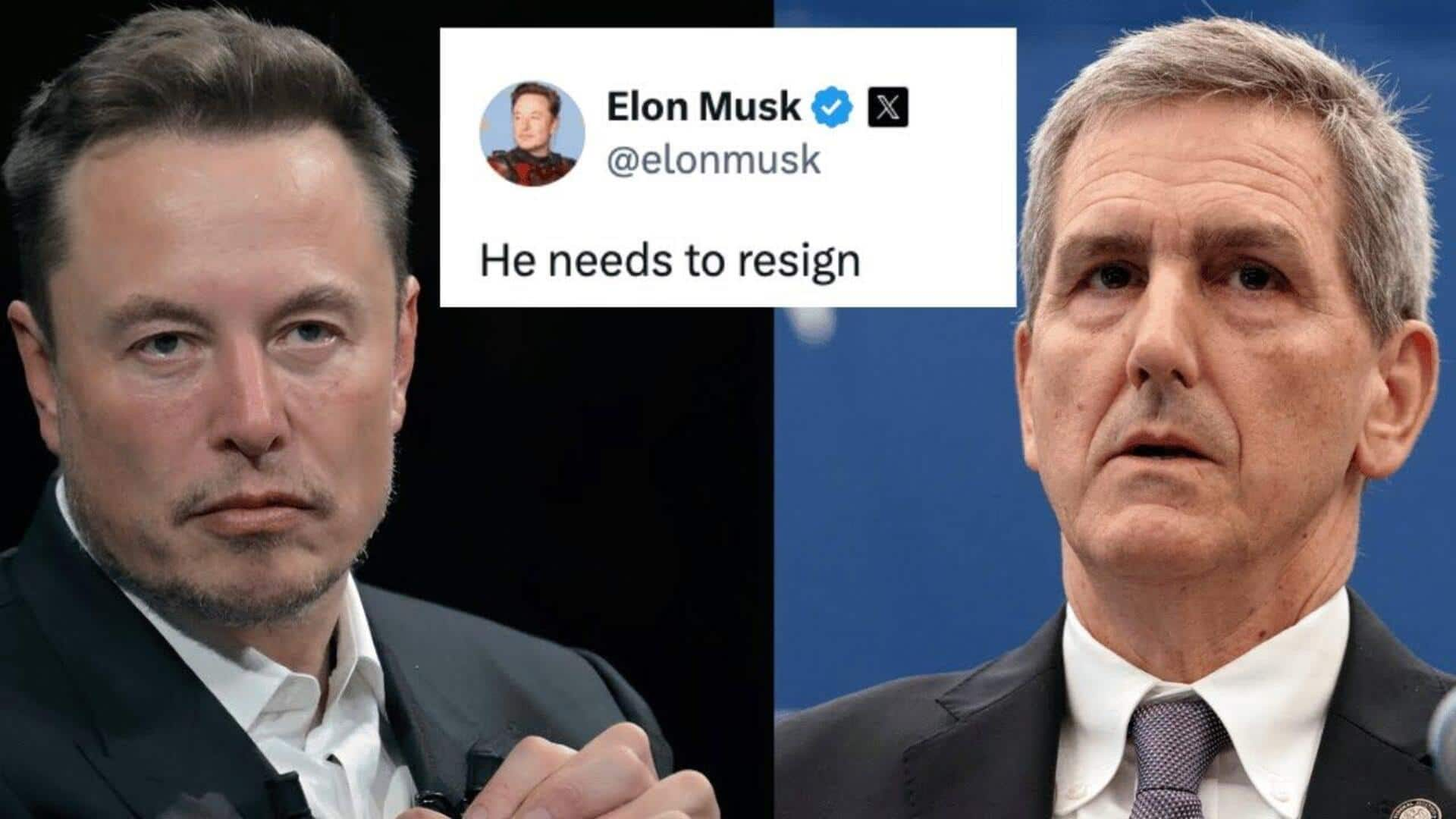
Why Elon Musk is calling for US FAA chief's resignation
What's the story
SpaceX CEO Elon Musk has publicly called for the resignation of Michael Whitaker, the Administrator of the US Federal Aviation Administration (FAA). This demand comes amid an ongoing dispute between SpaceX and the FAA over launch licensing and alleged violations. The conflict escalated when the FAA announced its intention to fine SpaceX $630,000 for purported infractions related to two launches in 2023.
Legal action
SpaceX challenges FAA's fines and delays
In response to the FAA's proposed fines, SpaceX sent a letter to the US Congress, arguing that the alleged violations were trivial and should not be classified as infractions. Musk further intensified the situation by announcing on X, that SpaceX plans to sue the FAA for "regulatory overreach." The dispute has also been fueled by delays in licensing for SpaceX's Starship rocket.
Congressional testimony
FAA chief defends agency's actions
Whitaker recently testified before the United States House Committee on Transportation and Infrastructure Subcommittee on Aviation, where he defended the FAA's actions. He stated fines are "the only tool we have to get compliance on safety matters." Whitaker also addressed delays in licensing for Starship's fifth flight test, attributing them to SpaceX's failure to provide an updated sonic boom analysis on time. SpaceX claims Starship has been flight-ready since August, but FAA's licensing reviews will only be completed by November.
Twitter Post
Take a look at Musk's post
He needs to resign https://t.co/pG8htfTYHb
— Elon Musk (@elonmusk) September 25, 2024
Counterclaim
SpaceX refutes FAA chief's claims
In a letter to Rep. Kevin Kiley, SpaceX disputed Whitaker's claims that the company violated Texas law and failed to provide necessary information for the Starship launch. The company argued that these issues were related to "environmental considerations that had been previously evaluated as posing no risk to the environment," rather than public safety concerns.